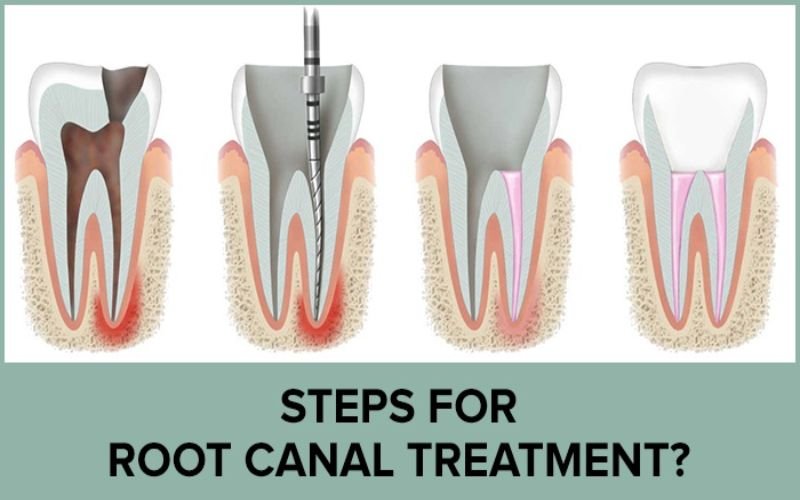
Menu
Root Canal Therapy
What is Root Canal Therapy?
Root canal therapy is a dental procedure used to treat infections or damage within the pulp of a tooth. The pulp is the soft tissue inside the tooth that contains nerves, blood vessels, or connective tissue. When this pulp becomes infected or damaged due to deep decay, trauma, or other issues, a root canal may be necessary to save the tooth and restore its function.

The Root Canal Process:
Diagnosis:
- The dentist performs a thorough examination, which may include X-rays, to assess the condition of the tooth and surrounding tissues. They determine if a root canal is needed based on symptoms, such as severe toothache, prolonged sensitivity to hot or cold, swelling, or tenderness.
Tooth Preparation:
- The dentist administers local anesthesia to numb the affected tooth and surrounding area. A rubber dam is placed around the tooth to keep it dry and free from saliva during the procedure.
Access Opening:
- An access hole is drilled into the tooth, typically from the top, to reach the pulp chamber and root canals.
Cleaning and Shaping:
- The dentist removes the infected or damaged pulp tissue using specialized instruments. The root canals are then cleaned, disinfected, and shaped to prepare them for filling.
Filling:
- The cleaned and shaped root canals are filled with a biocompatible material called gutta-percha. This material seals the canals to prevent future infection. The access hole is then sealed with a temporary or permanent filling.
Restoration:
- After the root canal, the tooth may need further restoration to restore its strength and function. This often involves placing a crown on the tooth to protect it from fracture and restore its normal function.
Benefits of Root Canal Therapy:
- Pain Relief: The procedure alleviates the pain caused by the infected or damaged pulp.
- Tooth Preservation: It allows you to keep your natural tooth, which is important for chewing and maintaining proper alignment of surrounding teeth.
- Restoration of Function: After the tooth is restored with a crown, it functions like a natural tooth.
- Prevention of Further Issues: Treating the infection prevents it from spreading to other teeth or causing more serious problems.
Considerations:
- Post-Treatment Sensitivity: It is common to experience some sensitivity or discomfort for a few days after the procedure, but this should subside as the tooth heals.
- Tooth Weakness: After a root canal, the tooth may be more susceptible to fracture due to the loss of pulp and nerves. A crown is often recommended to protect the tooth.
- Success Rate: Root canal therapy is highly successful, but in some cases, the procedure may need to be redone or an additional treatment may be required.
Aftercare:
- Good Oral Hygiene: Maintain good oral hygiene by brushing, flossing, and using an antimicrobial mouthwash to keep the area clean.
- Regular Check-ups: Follow up with your dentist for regular check-ups to monitor the tooth and ensure it is healing properly.
- Avoid Hard Foods: Avoid chewing hard or sticky foods on the treated tooth until it is fully restored.